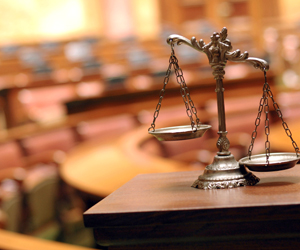 Feb. 21, 2014 – In a case that “raises a recurring and unsettled question of law,” a state appeals court has ruled that evidence of a driver’s blood alcohol level is still admissible even if the analyst who did the testing is unavailable to testify.
Feb. 21, 2014 – In a case that “raises a recurring and unsettled question of law,” a state appeals court has ruled that evidence of a driver’s blood alcohol level is still admissible even if the analyst who did the testing is unavailable to testify.
Michael Griep, convicted for operating while intoxicated, argued that allowing a different analyst to testify instead of the one who performed the testing at the state crime laboratory violated his constitutional right to confront the witnesses against him.
But in State v. Griep, 2009AP3073-CR (Feb. 19, 2014), a three-judge panel for the District II Court of Appeals followed state law precedent in ruling otherwise.
However, the panel noted that the federal circuits are currently split on the issue of whether “surrogate expert testimony” violates the Confrontation Clause.
“In short, the law is not clear, so we must adhere to our binding court precedents,” wrote Chief Judge Richard Brown, noting that Griep “makes a good argument.”
Griep Raises Confrontation Issue
Griep was speeding when police stopped him in the summer of 2007. The officer smelled alcohol and Griep admitted consuming three or four beers. After a preliminary breath test, the officer arrested Griep for operating while intoxicated.
Police took him to a hospital for blood testing. A phlebotomist drew the blood and packed the vials for lab testing. Both the officer and the phlebotomist testified at trial, but the lab analyst who ultimately tested his blood was not available to testify.
The analysts’ supervisor testified instead. He relied on a report from the testing analyst, which concluded that Griep’s blood alcohol level was .152, well over the legal limit.
The supervisor admitted that he could not testify as to the processes that the testing analyst used to test the blood, specifics about the blood when it came to the lab, or whether the analyst followed all proper handling procedures when testing the blood.
Griep’s attorney argued that the supervisor “is not allowed to vouch for the competency and honesty of another witness” without violating Griep’s right to confrontation.
In arguing that surrogate expert testimony is admissible, the state cited State v. Barton, 2006 WI App 18, 289 Wis. 2d 206, 709 N.W.2d 93, which relied on the state supreme court case of State v. Williams, 2002 WI 58, 253 Wis.2d 99, 644 N.W.2d 919.
In Barton, the court ruled that an expert witness can formulate an independent opinion, “even if the opinion is based in part on the work of another.”
Related Cases Decided
As Griep’s appeal was pending, the U.S. Supreme Court accepted and decided two related cases, including Williams v. Illinois, 132 S. Ct. 2221 (2012).
Griep argued that Williams overruled Barton. The state argued that the fractured Williams decision did not establish a clear law or overrule Wisconsin precedent.
The appeals court then certified Griep to the Wisconsin Supreme Court, which had already accepted review in a different but related case: State v. Deadwiller, 2012 WI App 89, 343 Wis. 2d 703, 820 N.W.2d 149. In Deadwiller, the court considered Williams and ruled that an expert who did not prepare a DNA report could still testify about it.
The Wisconsin Supreme Court then denied review in Griep, sending the case back to the appeals court to decide but benefitting from the analysis in Deadwiller.
Wisconsin Precedent Controls, for Now
The appeals court panel noted that in Deadwiller, the Wisconsin Supreme Court favorably cited Barton. Thus, the appeals court concluded that “we have no choice but to conclude that Barton remains the law of our state,” Chief Judge Brown explained.
“Only the state supreme court has the power to overrule our past decisions … except when United States Supreme Court precedent overrules those decisions in such clear terms that the Supremacy Clause compels our adherence to federal law instead,” Judge Brown noted.
Thus, the appeals panel ruled that under Barton, “the availability of a well-qualified expert, testifying as to his independent conclusion about the ethanol testing of Griep’s blood as evidence by a report from another state lab analyst, was sufficient to protect Griep’s right to confrontation. No binding federal precedent clearly overrules Barton.”
The appeals panel noted that Barton “may not be the last word on the issue” as petitions in cases invoking similar issues are pending before the U.S. Supreme Court.
“So, a definitive answer may be on the horizon,” Judge Brown wrote. In a footnote, Brown also had this to say:
“Should a higher court than ours eventually decide this issue in a manner favorable to Griep, we recognize the imposition such an opinion might well place on prosecutors and the state crime laboratory. Some might call it an inconvenience and others might call it disturbing. It is the proverbial elephant in the room.”
Brown also noted that the U.S. Supreme Court has stated that “convenience” is not a consideration when determining a person’s constitutional rights.
